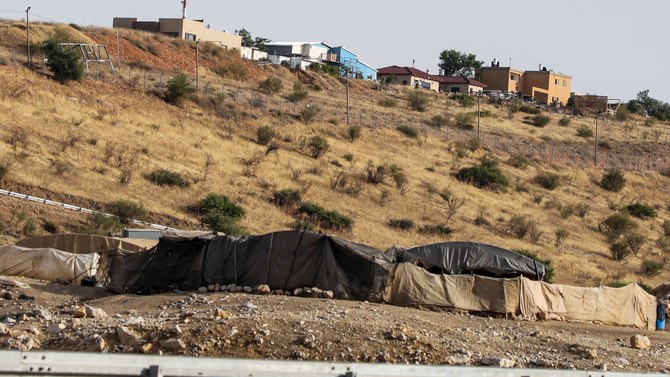
Prosecutors drop case against Shehroze Chaudhry after he confessed to never having joined Daesh
LONDON: A Canadian man has had charges against him dropped after admitting he made up stories about having been a member of Daesh in Syria.
Shehroze Chaudhry, 26, who called himself Abu Huzayfah, spread false tales of his escapades on social media in 2016, including that he had been an executioner for Daesh.
He was the subject of the award-winning New York Times podcast series “Caliphate” in 2018.
His lawyer Nader R. Hasan said Chaudhry’s lies were “borne of immaturity” and he realized his mistakes and wanted to “finish school and turn his life around.”
Canadian law-enforcement agencies were able to identify Chaudhry after Instagram posts made in 2016 by him claimed he had traveled to Syria in 2014, becoming part of Daesh’s Amniyat internal security group “for a bit less than a year.”
But investigators found that he had been living and working in Ontario during the period, using his social media posts to cross reference with documents including his driving license and travel records.
In November 2016, the US-based Middle East Media Research Institute gave Chaudhry’s social media posts to NYT journalists, which prompted his involvement in the “Caliphate” series. The institute also contacted the Royal Canadian Mounted Police.
In 2017, the RCMP interviewed Chaudhry about his social media posts, and he admitted that his stories were false.
But he continued to suggest that he had been a member of Daesh online afterward, including to NYT journalists.
After the release of “Caliphate,” he was arrested on suspicion of perpetrating a hoax threatening the public with terrorism.
This led to the NYT investigating the conduct and veracity of the series, and concluding: “Times journalists were too credulous about the verification steps that were undertaken and dismissive of the lack of corroboration of essential aspects of Mr. Chaudhry’s account.”
The series included “a history of misrepresentations by Mr. Chaudhry and no corroboration that he committed the atrocities he described in the ‘Caliphate’ podcast,” said NYT spokeswoman Danielle Rhoades Ha.
Prosecutors dropped the charges against Chaudhry on Friday, but forced him to post a so-called “peace bond” of 10,000 Canadian dollars ($8,017.51) subject to certain conditions.
An agreed statement between prosecutors and the defense presented to an Ontario court said Chaudhry had “never entered Syria nor participated in ISIS (Daesh) operations anywhere in the world.”
Under the terms of the bond, he must live with his parents in Ontario for a year, receive counseling, report any changes in virtual or physical circumstances to the police, and is prohibited from owning firearms.
The statement also alleged that the lead journalist in the “Caliphate” series, Rukmini Callimachi, had “encouraged” Chaudhry to spread misinformation.
“At times during the podcast, Ms. Callimachi expressly encouraged Mr. Chaudhry to discuss violent acts,” it said.
“When Mr. Chaudhry expressed reluctance to do so, she responded, ‘You need to talk about the killings.’”
Hasan said in an email seen by the NYT that the settlement “takes into account the tremendous strides that Mr. Chaudhry has made over the past two years. Despite the worldwide media attention this case has garnered and the stress of a criminal charge, Mr. Chaudhry has managed to graduate from university and maintain full-time employment.”
Errol P. Mendes, a law professor at the University of Ottawa, told the NYT that authorities concluded that Chaudhry was “an immature young man who basically made up a lot of stuff and tried to convince people that he was far more influential than he was.”
The “Caliphate” series was well-received following its release, and was awarded an Overseas Press Club Prize and a Peabody Award, while also being nominated for a Pulitzer Prize. All of its wins and nominations were subsequently rescinded or returned.











